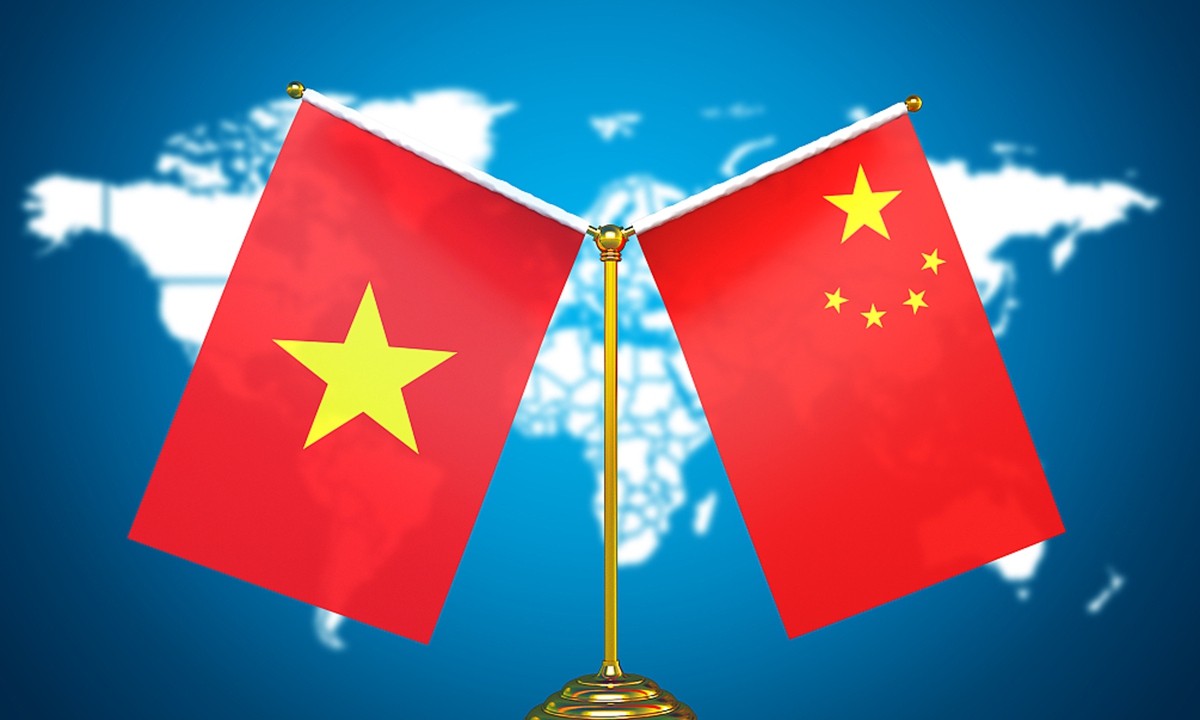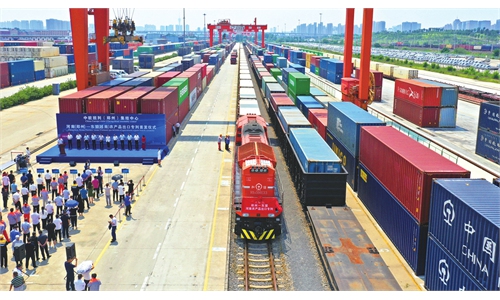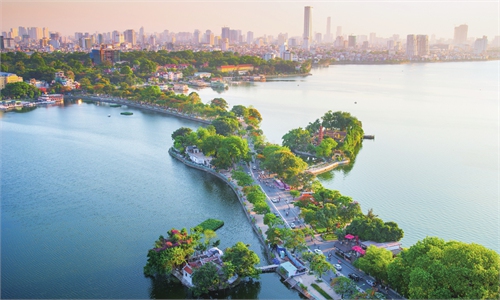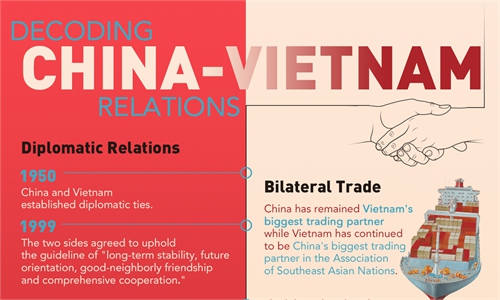China-Vietnam relations elevated to 'new heights' eagerly anticipated: Global Times editorial

Photo:VCG
At the invitation of General Secretary of the Communist Party of Vietnam Central Committee Nguyen Phu Trong and State President of the Socialist Republic of Vietnam Vo Van Thuong, Xi Jinping, general secretary of the Communist Party of China (CPC) Central Committee and Chinese president, is paying a state visit to Vietnam from December 12 to 13. This marks General Secretary Xi Jinping's second state visit to Vietnam in six years. The societies of both countries are eagerly anticipating that this visit will further propel China-Vietnam relations to a "new positioning" and reach "new heights" once again.
Since October of last year, General Secretary Nguyen Phu Trong, Prime Minister of Vietnam Pham Minh Chinh and President Vo Van Thuong have successively visited China. This frequency of high-level visits to China by Vietnamese leaders is relatively rare in bilateral relations of countries worldwide. The close interactions at the high level between the parties and governments of China and Vietnam, with visits occurring frequently as if they were relatives, fully demonstrate the high level and uniqueness of the China-Vietnam relationship. The deep friendship between China and Vietnam, as "comrades-plus-brothers friendship," provides both countries with shared goals and the impetus to embrace cooperation. This may be something that some countries outside the region find difficult to comprehend.
From the period of the US "rebalancing to the Asia-Pacific" to the subsequent introduction and implementation of the "Indo-Pacific Strategy" aimed at containing and suppressing China, the China-Vietnam relationship has received "special attention." Some individuals particularly enjoy creating stories about China-Vietnam relations. Vietnam's normal interactions with other countries, especially the US and its allies, are interpreted by them as signs of "joining the US system." According to their logic, China and Vietnam are unlikely to maintain good relations, and Vietnam is seen as one of China's neighboring countries most likely to be drawn into the "US camp." The significant increase in US efforts to woo Vietnam may be based on this assessment. This approach is not only malicious toward China but also highly disrespectful to Vietnam. However, facts have proven that this was a misjudgment or, one might say, a Western imagination. Vietnam's diplomacy and its relationship with China have not followed this line of thinking.
US President Joe Biden visited Vietnam in September, and both sides agreed to elevate their bilateral relationship to a "comprehensive strategic partnership." Vo Van Thuong visited Japan at the end of last month and also elevated the Vietnam-Japan relationship to a "comprehensive strategic partnership." This means that in the diplomatic hierarchy in Vietnam, the US and Japan have achieved the same level as China, Russia, India, and South Korea. Some Western public opinion has started to "feel upset for China," claiming that this is a "diplomatic victory" for the US and Japan, and a "diplomatic failure" or at least a "diplomatic loss" for China. It needs to be said that similar Western arguments have appeared many times in recent years, but they have all been refuted by the further development of China-Vietnam relations.
General Secretary Xi Jinping's visit to Vietnam this time should provide those who constantly focus on China-Vietnam relations but are ignorant and misjudging with a more comprehensive and objective understanding. The main line of China-Vietnam relations is very clear. Both China and Vietnam are promoting their respective socialist modernization endeavors, both regard China-Vietnam relations as the priority direction of their foreign policies, and both see the development of the other as an opportunity for their own development. As General Secretary Xi Jinping pointed out, the sustained, healthy, and stable development of China-Vietnam relations is in line with the fundamental interests of both parties, both countries, and both peoples, and is conducive to the flourishing development of the socialist cause, as well as to maintaining regional and world peace, stability, and promoting development and prosperity.
Since the beginning of this year, practical cooperation between China and Vietnam in various fields has noticeably accelerated. High-level and different level delegations from both countries have visited and contacted each other more frequently; bilateral trade between China and Vietnam has exceeded $200 billion for two consecutive years. From January to October this year, bilateral trade between China and Vietnam reached $185.1 billion. China has remained Vietnam's largest trading partner for many years. Vietnam is China's largest trading partner in ASEAN and the fourth largest trading partner globally. The economic interdependence and strong complementarity between China and Vietnam have led to an increasingly close integration of interests, solidifying the foundation of stable and broad bilateral relations. If some in the West think that China and Vietnam will be foolish about their relationship, then it is they who are truly foolish.
China and Vietnam are good neighbors and friends, connected by mountains and rivers. They are also good comrades and partners, sharing the same aspirations and destiny. They form a strategically significant community with a shared destiny. Against the backdrop of the changing international landscape, these "four goods" have not faded; instead, they have become even more prominent. It is believed that General Secretary Xi Jinping's visit will further elevate the "four goods" relationship between China and Vietnam, injecting new impetus into the stable development and prosperity of the Asia-Pacific region, as well as bringing more certainty and stability to a turbulent world.



